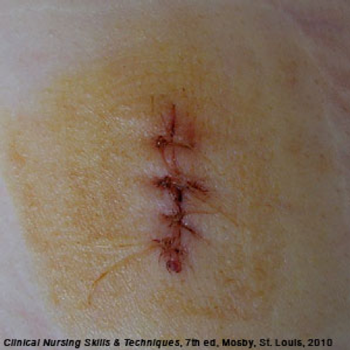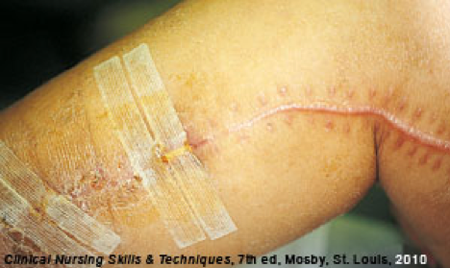When you care for someone needing wound care, always look at their dressing and wound daily, to observe for healing. You need to know what a normal, healing wound looks like to recognize signs of infection. Your doctor and home health nurse will also tell you the signs to look for in normal healing.

First 24 hours

Next 2 to 3 days

Next 3 to 24 days
An abrasion means that the surface layers of the skin have been broken.

First 24 hours

Next 2 to 3 days
A main goal in caring for a person’s wound is to prevent infection. Know a person’s risks for infection.
When you observe a person’s wound each day, look for these signs of infection: